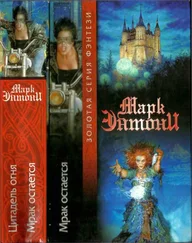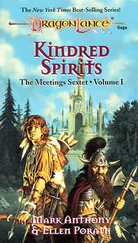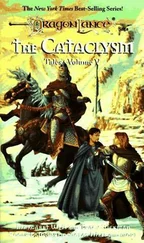Марк Энтони - The Cataclysm
Здесь есть возможность читать онлайн «Марк Энтони - The Cataclysm» весь текст электронной книги совершенно бесплатно (целиком полную версию без сокращений). В некоторых случаях можно слушать аудио, скачать через торрент в формате fb2 и присутствует краткое содержание. Год выпуска: 1992, Жанр: Фэнтези, на английском языке. Описание произведения, (предисловие) а так же отзывы посетителей доступны на портале библиотеки ЛибКат.
- Название:The Cataclysm
- Автор:
- Жанр:
- Год:1992
- ISBN:нет данных
- Рейтинг книги:5 / 5. Голосов: 1
-
Избранное:Добавить в избранное
- Отзывы:
-
Ваша оценка:
- 100
- 1
- 2
- 3
- 4
- 5
The Cataclysm: краткое содержание, описание и аннотация
Предлагаем к чтению аннотацию, описание, краткое содержание или предисловие (зависит от того, что написал сам автор книги «The Cataclysm»). Если вы не нашли необходимую информацию о книге — напишите в комментариях, мы постараемся отыскать её.
The Cataclysm — читать онлайн бесплатно полную книгу (весь текст) целиком
Ниже представлен текст книги, разбитый по страницам. Система сохранения места последней прочитанной страницы, позволяет с удобством читать онлайн бесплатно книгу «The Cataclysm», без необходимости каждый раз заново искать на чём Вы остановились. Поставьте закладку, и сможете в любой момент перейти на страницу, на которой закончили чтение.
Интервал:
Закладка:
The Cataclysm
Edited by Margaret Weis and Tracy Hickman
Introduction
The world was forged upon three pillars: good, evil, neutrality. In order to progress, a balance between the three must be maintained. But there came a time in Krynn when the balance tilted. Believing himself to be the equal to the gods in knowledge and in wisdom, the Kingpriest of Istar sought the gods in arrogance and pride and demanded that they do his bidding.
Having viewed with sorrow the tilting of the scales of balance, resulting in hatred, prejudice, race divided against race, the gods determined to restore the balance of the world. They cast a fiery mountain upon Ansalon, then withdrew their power, hoping those intelligent races who dwelt upon Krynn would once again find their faith—in the gods, in themselves, and in each other.
This catastrophe became known as the Cataclysm.
Michael Williams tells a tale of vengeance in his epic poem, “The Word and the Silence.” He and his wife, Teri, continue the tale and turn it into a mystery, as the accused murderer’s son seeks to end the curse on his family in “Mark of the Flame, Mark of the Word.”
Matya, a very cunning trader, stumbles onto the bargain of her life—literally—in Mark Anthony’s “The Bargain Driver.”
In Todd Fahnestock’s story, “Seekers,” a young orphan boy embarks on a perilous journey to ask the gods a question.
For most people, the Cataclysm meant sorrow, death, ruination. For the entrepreneurs in Nick O’Donohoe’s story, “No Gods, No Heroes,” the Cataclysm means opportunity.
Richard A. Knaak tells the tale of Rennard, known to readers of The Legend of Huma . Now a ghost, doomed to torment in the Abyss, Rennard finds himself transported back to Ansalon during the Cataclysm. Is it an accident, or has he been brought back for a reason?
Dan Parkinson continues the adventures of the Bulp clan of gully dwarves. Led by their valiant leader, Gorge III, the Bulps leave Istar in search of the Promised Place. What they find instead is certainly not what they expected, in “Ogre Unaware.”
Roger E. Moore reveals why Astinus never hires kender to be scribes, in his story, “The Cobbler’s Son.”
A ship bound for Istar may be making its final voyage, in Paul B. Thompson and Tonya R. Carter’s story, “The Voyage of the Sunchaser .”
Doug Niles continues the adventures of his scribe, Foryth Teal, as that intrepid historian sets out to investigate a priest’s claim that he can perform miracles, in “The High Priest of Halcyon.”
In “True Knight,” we continue the story of the cleric of Mishakal, Brother Michael, and Nikol, daughter of a Solamnic Knight. The two survive the Cataclysm, but now they want answers. Their search leads them to an encounter with the knight who, so rumor has it, could have prevented the Cataclysm.
Margaret Weis and Tracy HickmanThe Word and the Silence
Michael Williams
I
On Solamnia’s castles
ravens alight,
dark and unnumbered
like a year of deaths,
and dreamt on the battlements,
fixed and holy,
are the signs of the Order
Kingfisher and Rose—
Kingfisher and Rose
and a sword that is bleeding forever
over the covering mountains,
the shires perpetually damaged,
and the blade itself
is an unhealed wound,
convergence of blood and memory,
its dark rain masking
the arrangement of stars,
and below it the ravens gather.
Below it forever
the woman is telling the story,
telling it softly
as the past collapses
into a breathing light,
and I am repeating her story
then and now in a willful dusk
at the turn of the year
in the flickering halls of the keep.
The story ascends and spirals,
descends on itself
and circles through time
through effacing event
and continuing vengeance
down to the time
I am telling her telling you this.
But bent by the fire
like a doubling memory,
the woman recounts and dwells
in a dead man’s story,
harsh in the ears
of his fledgling son,
who nods, and listens again,
and descends to a dodging country
of tears and remembrance,
where the memories of others
fashion his bent recollections,
assemble his father
from mirrors and smoke
and history’s hearsay
twines and repeats,
and the wavering country,
Solamnia, muses and listens.
Out on the plains, Orestes,
the woman is saying, out among fires
Which the bard’s voice ignited
In rumor and calumny,
There they are burning your father,
His name and our blood
Forever from Caergoth
To harboring Kalaman
And out in the dying
Bays of the north:
All for a word, my son,
A word masked as history
Shielding a nest of adders.
With words are we poisoned,
Orestes, my son , she repeats
in the fragmenting darkness,
the firelight fixed
on her hair, on the ivory
glove of her hand
and the tilted goblet.
And always Orestes listened
and practiced his harp
for the journey approaching,
and the world contracted,
fierce and impermeable,
caged in the wheeling words
of his mother, caged
in a custom of deaths.
II
Three things are lost
in the long night of words:
history’s edge
the heart’s long appeasement
the eye of the prophet.
But the story born
of impossible fragments
is this that Lord Pyrrhus Alecto
light of the coast
arm of Caergoth
father to dreaming
and to vengeful Orestes
fell to the peasants
in the time of the Rending
fell in the vanguard
of his glittering armies
and over his lapsing eye
wheeled constellations
the scale of Hiddukel
riding west to the garrisoned city.
It is there that the edge
of history ends:
the rest is a song
that followed on song
the story involved
in its own devising
tied in devolving circles until
truth was a word
in the bardic night
and the husk of event
was a dim mathematics
lost in the matrix of stars.
III
But this is the story
as Arion told it,
Arion Corvus, Branchala’s bard
the singer of mysteries
light on the wing
string of the harp.
Unhoused by the Rending,
traveling west, his map
a memory of hearth and castle,
unhoused, he sounded forever
the hymns of comet
and fire perpetual
sounded the Time of the Rending,
betrayals and uprisings
spanning the breadth of the harper’s hand,
and history rode
on the harp incanting
the implausible music of breath.
His was the song I remember,
his song and my mother’s retelling.
O sing the ravens
perpetually wronged
to the ears of my children,
O sing to them, Arion Stormcrow:
Down in the arm of Caergoth he rode:
Pyrrhus Alecto, the knight of the night of betrayals
Firebrand of burning that clouded the straits of Hylo,
The oil and ash on the water, ignited country.
Forever and ever the villages burn in his passage,
And the grain of the peasantry, life of the ragged armies
That harried him back to the keep of the castle
Where Pyrrhus the Firebringer canceled the world
Beneath the denial of battlements,
Where he died amid stone with his covering armies.
For seventeen years the country of Caergoth
Has burned and burned with his effacing hand,
A barren of shires and hamlets,
And Firebringer history hangs on the path of his name.
Интервал:
Закладка:
Похожие книги на «The Cataclysm»
Представляем Вашему вниманию похожие книги на «The Cataclysm» списком для выбора. Мы отобрали схожую по названию и смыслу литературу в надежде предоставить читателям больше вариантов отыскать новые, интересные, ещё непрочитанные произведения.
Обсуждение, отзывы о книге «The Cataclysm» и просто собственные мнения читателей. Оставьте ваши комментарии, напишите, что Вы думаете о произведении, его смысле или главных героях. Укажите что конкретно понравилось, а что нет, и почему Вы так считаете.
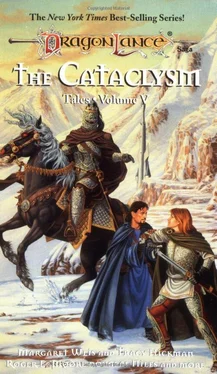
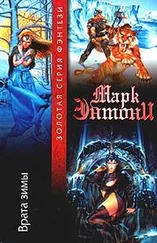
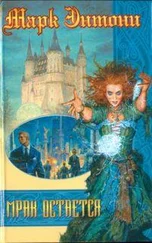

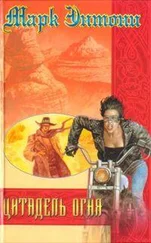
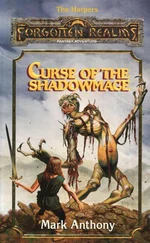
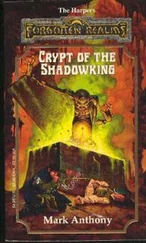
![Марк Энтони - Цитадель огня. Мрак остаётся [Авт. сборник]](/books/103986/mark-entoni-citadel-ognya-mrak-ostaetsya-avt-sbo-thumb.webp)
